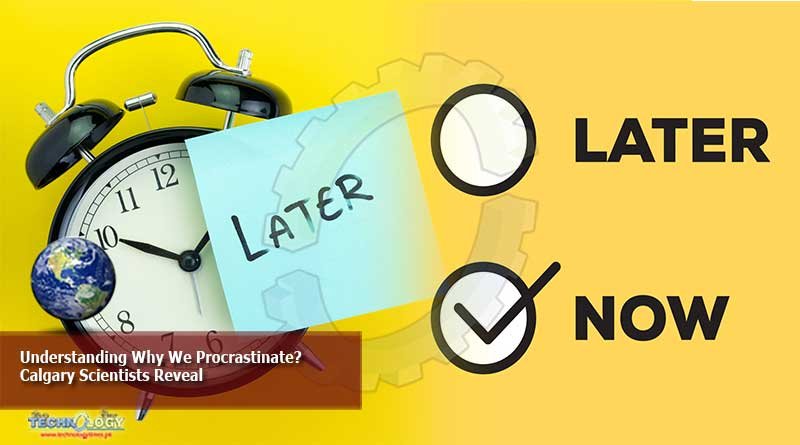Understanding why we procrastinate goes a long way toward stopping it before it happens, according to Piers Steel.

More people are working from home and for some, procrastination might weigh down especially heavy
In the beginning, many of us working from home may have found it to be just as productive as working in the office.
But as we continue to work remotely, it’s easy to get distracted by things around the house and put off the work we should be doing.
Understanding why we procrastinate goes a long way toward stopping it before it happens, according to Piers Steel, a professor and the Brookfield Resident Chair at the University of Calgary’s Haskayne School of Business.
He’s also the co-author on a new procrastination study and the author of a book called The Procrastination Equation: How to Stop Putting Things Off and Start Getting Stuff Done.
He says it comes down to a difference between onset delay (choosing to get started) and goal-striving delay (the act of continuing the task until completed). He says the two are related but separable.
“Some people can be very good at getting started but they are very slow on the stretch,” he said.
Meanwhile others might have troubles getting started but can go strong until the end once they do get going.
He said it’s possible for people to be good at both, or like some “poor souls,” he says, they can be bad at both.
Three basic trends, Steel says
As for why people procrastinate, Steel says there’s some basic trends, and it can be pared down to three main variables.
For one, you might be more prone to procrastinate if the task you have to do is not enjoyable or you find it aversive.
“We tend to put off things we dislike — big surprise there,” he said.
Self-doubts can also cause your motivation to go down and the likeliness to procrastinate to go up.
And finally, how impulsive you are might play a role.
“If you’re an impulsive person you’re likely pretty distractible and you have real difficulty making the future real. We call it in a shortened temporal horizon,” Steel said.
“You want to have motivation but it doesn’t happen until the long term becomes the short term — until just before deadline whereupon you wake up and you know there’s the motivation you desperately wanted earlier but it was all there at the end.”
He says it’s like drinking from an eyedropper when it’s weeks or months away and then drinking from a fire hose when it’s just a few hours.
While it’s not exactly “convenient,” he says, our genetics can be partly to blame. “We were designed this way. It was evolutionary, it was once adapted to have this sort of mind set,” Steel said.
Environmentally driven distractions
Procrastination is especially a “huge problem,” he said, since much of our motivation is converted into habits and cues — like schedules. And with the COVID-19 pandemic, which forced some people to make home offices, some people’s normal routines became muddled.
He said it could be worse for those who get to choose when they work, since if they’re a procrastinator, there’s a tendency to put off the “hardest” tasks until later.
Procrastination is also environmentally driven, he said, so home distractions can come on easily such as TV on or having children at home.
It also doesn’t help when while working from home, there’s no one from work looking over your shoulder, he said.
“Today it’s just a few clicks to distractions,” he said. “We’ve never lived in a time when self discipline is harder than it is now … when you’re home there’s triggers for everything.”
His advice? Make a routine, he says.
If you leave things up in the air it’s less likely to get done, Steel said. Making yourself time restrictions also helps — since, if you give yourself a time limit for a task, you can create a sense of urgency.
“Routine is what we’re all kind of searching for,” he said.
“And when we don’t have one we have to use willpower for every action and willpower is really depletable.”
The article is originally published at CBC.
